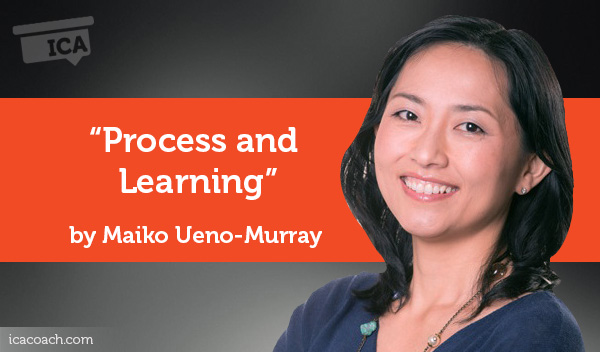Research Paper By Maiko Ueno-Murray
(Expats & Expat Spouses Coach, FRANCE)
Coaching Case Study
-
Who are the main players in this case study
Rina is a Japanese woman, who was in her early 30s. She moved to US with her husband who was offered the position in U.S.
- What is the core problem or challenge you applied your coaching skills to?
- Why is it a problem?
She didn’t enjoy her life U.S..
- How long has it been a problem?
When we had a session, it had been six months since they moved to U.S.
- What is the worst thing about this problem?
Her accumulated frustration started to affect the relationships with her husband in not a good way.
- Why has no one been able to solve it so far?
♦She didn’t have any good friends to share her emotion in U.S.
♦She didn’t talk about her suffering to her family or friends back in
Japan as she didn’t want to make them worry about her.
-
What specific coaching skills or approach did you use in this case?
1) Establishing trust
2) Show empathy
3) Active Listening
4) Powerful Questioning
5) Use humor
-
Explain your process in detail
First I took my time to explain to her that this is a very safe space so that she can express her thoughts freely. The reason why I took some time for this was that I was also living in the area where she lived, so I thought she might be worried if I would reveal the content of the session to other Japanese people. I wanted her to trust me 100% and tell me her real feeling and emotion, nothing hidden behind.
Once I noticed her trust in me, I started to listen to her story. Since I was the very first person for her to talk about her challenge, she had a lot to talk. I was showing empathy from time to time together with using active listening skills.
After she vented it out, I started to ask some questions to clarify her emotion and her desired outcome. I tried to use humor as well to make her more relaxed. The more she relaxed the more open she became.
-
What were the results of your process? Was your coaching/program effective? Why? Why not?
Rina successfully had the awareness and created some action plans.
I can say that my coaching was effective as she found out what really bothered her through our session.
At first she said she was frustrated with her English level. But when we clarified what was really going on with her, she found out it was not the language problem, but it was the fact that she didn’t have any good friends in this area, which made her very frustrated and feel unsecured.
After her discovery, she was more focused on how to create new friends or where she could meet new people.
-
If you could approach this problem again, what would you do differently?
She came up with the action plan, but it was still larger plan. Next time once she creates the action plan, I would ask her to break down into smaller pieces.
-
What are the top 3 things you learnt from this experience?
1) Always keep in mind that client can come up with ideas
When she was exploring the ideas about where she could meet new people, she had a hard time to find the ideal place. I had an urge to tell her about t my idea, but I kept telling myself that eventually she would come up with her own idea. In the end, she did find the great answer which I never thought of.
2) Separate my story and client’s story
Because I was also an expat spouse, her situation was very similar as mine. Sometimes I related to her too much. I found out I tend to be judgemental when it happened.
3) Don’t jump into creating action plan when the client is not sure what she wants.
At first Rina explained to me that it was the language problem which made her life stressful. She wanted to make some action plan about how to overcome the fear for English. But when I listened to her story, my intuition said there was another issue underneath. I kept listening to her story, asking her questions and finally she came to the conclusion that it was actually the friendship issue which made her stressed out.
Through this experience, I learned that sometimes even client doesn’t recognize her real issue or what the trigger is. It is our job as a coach to reveal what is REALLY going on.
-
